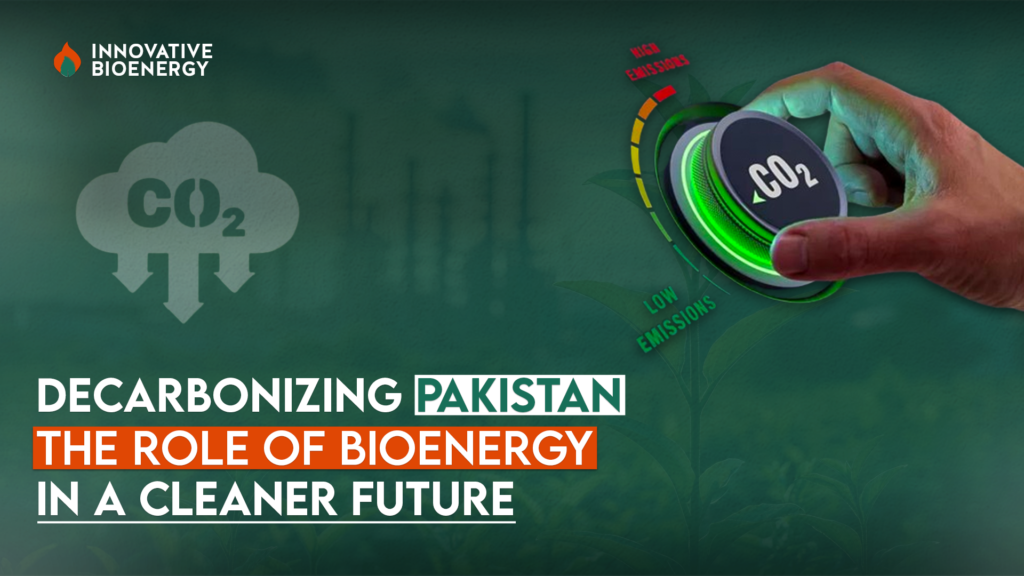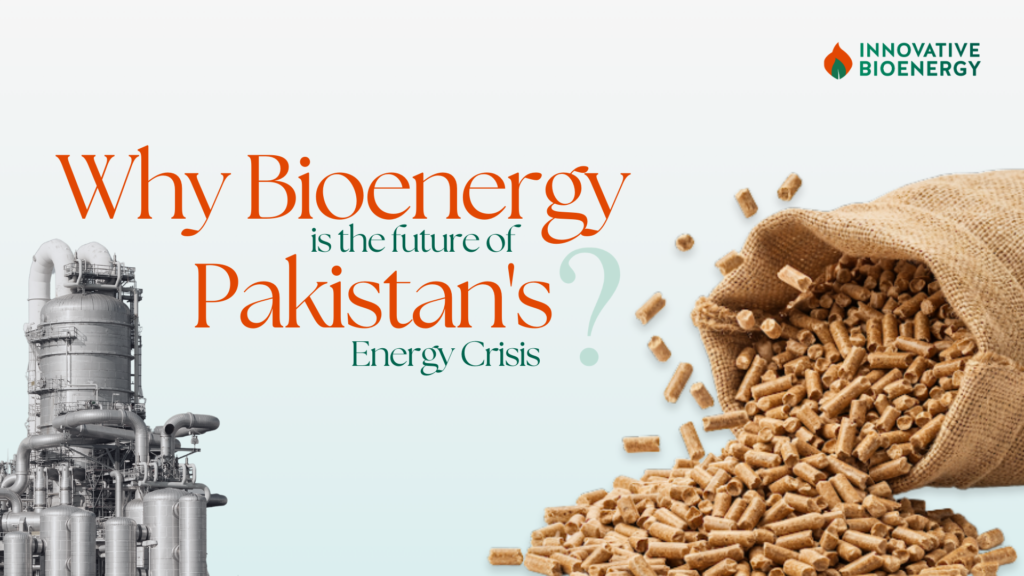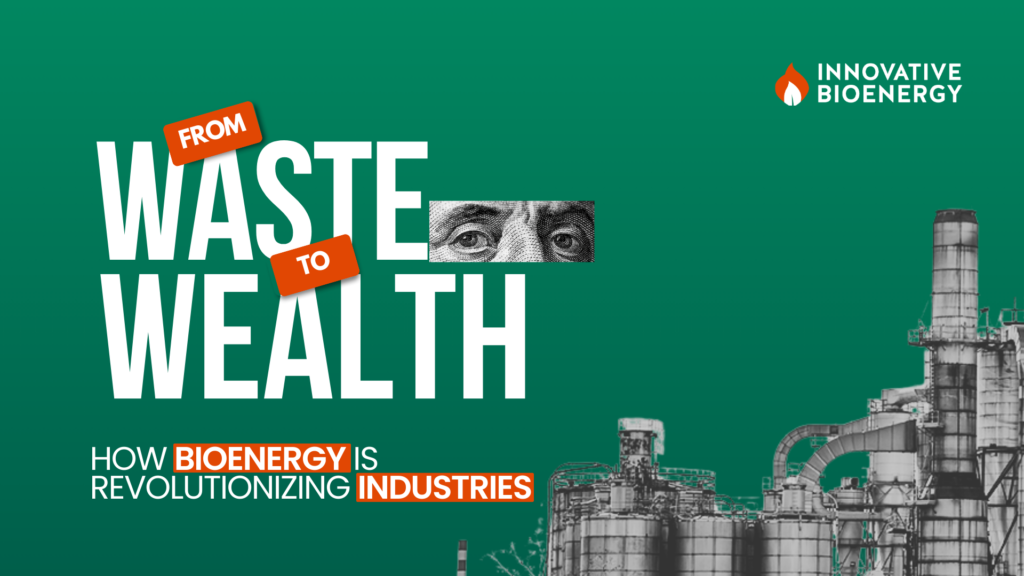Pakistan is facing a major challenge in meeting the growing energy needs without harming the environment. Power shortages are common, especially in rural areas. At the same time, rising pollution and global warming are creating serious risks for the country’s future.
This is where decarbonization comes in. Decarbonization means reducing carbon emissions released from burning fossil fuels like coal, oil, and gas. These emissions add to the carbon footprint, which is the total amount of greenhouse gases released into the air by people, businesses, or even entire countries.
To tackle this, Pakistan has promised to cut 50% of its future emissions by 2030 under its climate action plan, called the Nationally Determined Contribution (NDC). The plan includes increasing renewable energy, using more electric vehicles, and developing bioenergy, a solution that’s often overlooked but full of potential.
What Is Bioenergy and Why Does It Matter
Bioenergy is energy made from natural waste, like crop leftovers, animal waste, or food waste. It’s part of biomass energy, which turns organic material into electricity, gas, or heat. Bioenergy helps reduce waste, lowers pollution, and offers a renewable energy source that can support communities and industries alike.
In a country like Pakistan, where agriculture is a big part of the economy, there’s a lot of unused organic waste that could be turned into energy. This makes bioenergy in Pakistan for sustainable development a smart and affordable path forward.
Bioenergy Potential and Current Initiatives
Agricultural Waste Utilization
Every year, Pakistan generates millions of tons of agricultural waste, such as crop residues, bagasse, and rice husks, that often go unused. If even a portion of this organic material is converted into energy, it could power millions of homes, especially in rural areas, and significantly reduce carbon emissions. This underused potential holds the key to cleaner electricity, improved energy access, and a more sustainable future for the country.
Biogas Infrastructure
Punjab province currently hosts over 5,360 biogas plants as per the report, providing clean cooking fuel and creating jobs for local people.
Plans are underway to expand capacity further. The Punjab Power Development Board aims to generate 30 MW of biogas-based electricity from cattle waste in Karachi and produce 1,500 tons/day of biofertilizer, a major step toward sustainable development and energy independence.
Decentralized Energy Solutions
As indicated by the report, more than 63% of rural households in Pakistan still lack access to the national electricity grid. Centralized energy systems also suffer from over 17% transmission losses. To overcome this, small-scale biomass plants offer a smart alternative.
These localized systems can directly serve rural communities, turning agricultural waste into energy and producing biofertilizers to improve soil health. This dual benefit reduces the need for imported synthetic fertilizers and helps improve crop productivity, making bioenergy solutions for Pakistan’s rural communities more attractive than ever.
Challenges and Strategic Advantages
Policy Gaps
Despite its benefits, bioenergy remains underrepresented in Pakistan’s energy and climate policies. The NDC lacks dedicated targets for biogas or biomass development, focusing more on solar and hydro power. This policy gap limits investment and slows progress.
Emission Reductions
According to the Pakistan Climate Transparency Report, replacing coal with biomass energy in existing power plants could reduce emissions from the power sector by 25% by 2030. This would be a major step in decarbonizing Pakistan’s industrial sector through bioenergy and achieving national climate targets.
Recommendations for Scaling Bioenergy
Enforce Waste-to-Energy Mandates
Pakistan should introduce clear policies that require sugar mills, livestock farms, and municipal facilities to adopt biogas technologies. This would help open large-scale green energy production while managing organic waste.
Invest in Research and Hybrid Technologies
Funding is needed to develop high-efficiency gasifiers and hybrid energy systems that combine solar and biomass. This would ensure a more consistent and reliable energy supply, especially during seasonal gaps.
Conclusion
Pakistan is facing big challenges, energy shortages, rising pollution, and climate risks. But with the right steps, these problems can turn into opportunities. Bioenergy, made from natural and agricultural waste, is a clean, affordable, and local solution that can help meet energy needs without harming the environment.
By using this natural resource wisely, supporting better policies, and investing in new technologies, Pakistan can reduce its carbon emissions, support rural communities, and move toward energy independence. Bioenergy is not just good for the environment, it’s also a smart way to grow the economy and build a better future for all.



